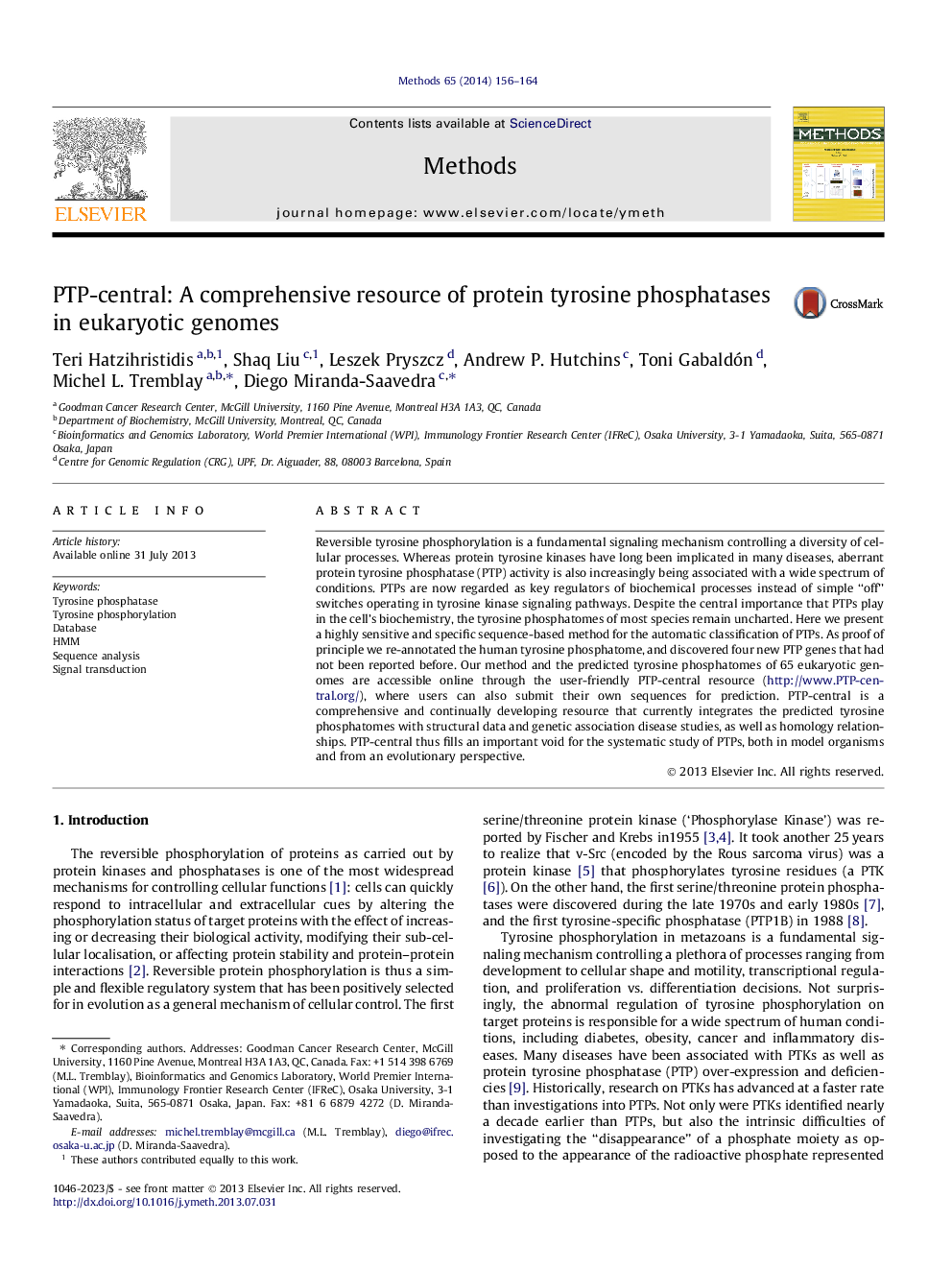| Article ID | Journal | Published Year | Pages | File Type |
|---|---|---|---|---|
| 10825777 | Methods | 2014 | 9 Pages |
Abstract
Reversible tyrosine phosphorylation is a fundamental signaling mechanism controlling a diversity of cellular processes. Whereas protein tyrosine kinases have long been implicated in many diseases, aberrant protein tyrosine phosphatase (PTP) activity is also increasingly being associated with a wide spectrum of conditions. PTPs are now regarded as key regulators of biochemical processes instead of simple “off” switches operating in tyrosine kinase signaling pathways. Despite the central importance that PTPs play in the cell's biochemistry, the tyrosine phosphatomes of most species remain uncharted. Here we present a highly sensitive and specific sequence-based method for the automatic classification of PTPs. As proof of principle we re-annotated the human tyrosine phosphatome, and discovered four new PTP genes that had not been reported before. Our method and the predicted tyrosine phosphatomes of 65 eukaryotic genomes are accessible online through the user-friendly PTP-central resource (http://www.PTP-central.org/), where users can also submit their own sequences for prediction. PTP-central is a comprehensive and continually developing resource that currently integrates the predicted tyrosine phosphatomes with structural data and genetic association disease studies, as well as homology relationships. PTP-central thus fills an important void for the systematic study of PTPs, both in model organisms and from an evolutionary perspective.
Keywords
Related Topics
Life Sciences
Biochemistry, Genetics and Molecular Biology
Biochemistry
Authors
Teri Hatzihristidis, Shaq Liu, Leszek Pryszcz, Andrew P. Hutchins, Toni Gabaldón, Michel L. Tremblay, Diego Miranda-Saavedra,
